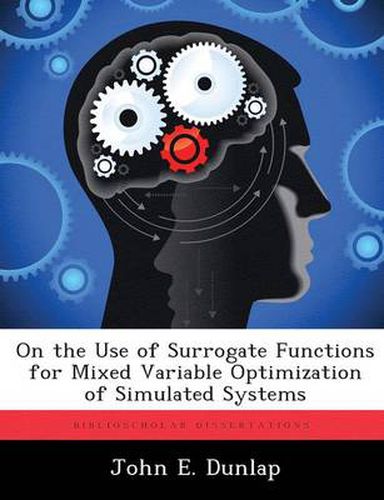Readings Newsletter
Become a Readings Member to make your shopping experience even easier.
Sign in or sign up for free!
You’re not far away from qualifying for FREE standard shipping within Australia
You’ve qualified for FREE standard shipping within Australia
The cart is loading…






This title is printed to order. This book may have been self-published. If so, we cannot guarantee the quality of the content. In the main most books will have gone through the editing process however some may not. We therefore suggest that you be aware of this before ordering this book. If in doubt check either the author or publisher’s details as we are unable to accept any returns unless they are faulty. Please contact us if you have any questions.
This research considers the efficient numerical solution of linearly constrained mixed variable programming (MVP) problems, inwhich the objective function is a black-box stochastic simulation, function evaluations may be computationally expensive, andderivative information is typically not available. MVP problems are those with a mixture of continuous, integer, and categoricalvariables, the latter of which may take on values only from a predefined list and may even be non-numeric. Mixed VariableGeneralized Pattern Search with Ranking and Selection (MGPS-RS) is the only existing, provably convergent algorithm that can beapplied to this class of problems. Present in this algorithm is an optional framework for constructing and managing less expensivesurrogate functions as a means to reduce the number of true function evaluations that are required to find approximate solutions.In this research, the NOMADm software package, an implementation of pattern search for deterministic MVP problems, is modifiedto incorporate a sequential selection with memory (SSM) ranking and selection procedure for handling stochastic problems. In doingso, the underlying algorithm is modified to make the application of surrogates more efficient. A second class of surrogates based onthe Nadaraya-Watson kernel regression estimator is also added to the software. Preliminary computational testing of the modifiedsoftware is performed to characterize the relative efficiency of selected surrogate functions for mixed variable optimization insimulated systems.
$9.00 standard shipping within Australia
FREE standard shipping within Australia for orders over $100.00
Express & International shipping calculated at checkout
Stock availability can be subject to change without notice. We recommend calling the shop or contacting our online team to check availability of low stock items. Please see our Shopping Online page for more details.
This title is printed to order. This book may have been self-published. If so, we cannot guarantee the quality of the content. In the main most books will have gone through the editing process however some may not. We therefore suggest that you be aware of this before ordering this book. If in doubt check either the author or publisher’s details as we are unable to accept any returns unless they are faulty. Please contact us if you have any questions.
This research considers the efficient numerical solution of linearly constrained mixed variable programming (MVP) problems, inwhich the objective function is a black-box stochastic simulation, function evaluations may be computationally expensive, andderivative information is typically not available. MVP problems are those with a mixture of continuous, integer, and categoricalvariables, the latter of which may take on values only from a predefined list and may even be non-numeric. Mixed VariableGeneralized Pattern Search with Ranking and Selection (MGPS-RS) is the only existing, provably convergent algorithm that can beapplied to this class of problems. Present in this algorithm is an optional framework for constructing and managing less expensivesurrogate functions as a means to reduce the number of true function evaluations that are required to find approximate solutions.In this research, the NOMADm software package, an implementation of pattern search for deterministic MVP problems, is modifiedto incorporate a sequential selection with memory (SSM) ranking and selection procedure for handling stochastic problems. In doingso, the underlying algorithm is modified to make the application of surrogates more efficient. A second class of surrogates based onthe Nadaraya-Watson kernel regression estimator is also added to the software. Preliminary computational testing of the modifiedsoftware is performed to characterize the relative efficiency of selected surrogate functions for mixed variable optimization insimulated systems.